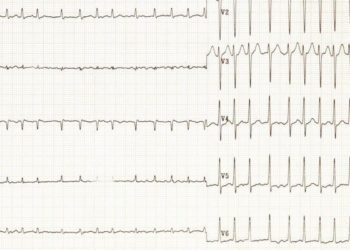Repeated, brief behavioral counseling reduces drinking and hospitalizations among at-risk alcohol consumers
Image: CC/Luis
Key study points:
- Brief, multi-contact counseling by primary care physicians is linked to reduced alcohol consumption
- Counseling interventions were not associated with a reduction in all-cause mortality
Primer: Excessive alcohol consumption is a known risk factor for multiple health issues including heart disease, cancer, psychiatric illness, adverse sexual health, and accident-induced injuries. Considered one of the top three leading causes of preventable death in the United States, individuals who engage in risky alcohol consumption often place themselves and others at increased risk. Therefore, preventing individuals from abusing alcohol or becoming alcohol dependent is of considerable public health concern. Many studies have examined the effects of screening and implementing early interventions for patients exhibiting symptoms of alcohol misuse including risky consumption, abuse, or dependence with varying results.
Authors of the current study examined the outcomes of screening for alcohol misuse and the use of different approaches to behavioral counseling interventions (BCIs) as a method of preventing negative health outcomes. In order to aid in the adjustment of the USPSTF alcohol misuse prevention recommendation, researchers aimed to determine morbidity, mortality, health and lifestyle outcomes, and adverse effects associated with behavioral counseling as a method of intervention for those misusing alcohol.
See also:
- Alcohol and public health [The Lancet]
- Barriers and facilitators to implementing screening and brief intervention for alcohol misuse: a systemic review of qualitative evidence [Journal of Public Health]
This [review and meta-analysis] study: Thirty-eight studies covering 23 randomized, controlled trials from January 1, 1985 through January 31, 2012 were included for review. BCIs were completed by healthcare providers including physicians, nurses, physician assistants and psychologists. Studies were stratified according to age of study participants as well as the length and type of follow-up of intervention used—very brief (~5min), brief single-contact (<15min), brief multicontact (10-15min), and extended multicontact and then analyzed for their associations with different outcomes.
Researchers confirmed the effectiveness of screening instruments in detecting alcohol misuse and found a moderate strength association between BCIs and reduced alcohol consumption for almost all participant groups. In addition, they showed that brief, multicontact BCIs had stronger associations with positive intermediate outcomes (reduced consumption, reduced alcohol binges, and episodes within recommended drinking limits) than both very brief and brief, single contact BCIs. No adverse effects, apart from the costs associated with screening and intervention were noted, and BCIs performed by primary care physicians tended to show a greater reduction in alcohol consumption among patients. In addition, there was moderate strength of evidence showing reduced hospitalizations in adults who were screened and had BCI, along with a reduction in alcohol-related accidents and academic consequences among young adults.
In sum: BCIs are found to be associated with positive intermediate and health outcomes among many participants, with brief, multicontact BCI considered the most effective intervention approach. Researchers conclude that their findings agree with previous studies regarding the effectiveness of BCI for individuals struggling with risk and abuse, as opposed to alcohol dependence. This results of this study served as the basis for the updated class B recommendation by the USPSTF encouraging primary care providers to screen all adults, including pregnant women, for alcohol misuse, and to employ brief counseling when appropriate.
While providing support for brief, multicontact counseling, there are several limitations to the review and meta-analysis including the inability to standardize counseling methods, counseling materials, screening tools, and methods of reporting between studies. In addition, comorbid psychiatric conditions were not taken into account, and known connections between alcoholism and mental illness may likely influence response to BCI. Also, the study examined BCI implementation in the primary care setting, leaving its applicability to other environments largely unknown.
Click to read the study in Annals of Internal Medicine
Click to read the draft USPSTF recommendation
Written by LHC and RR
© 2012 2minutemedicine.com. All rights reserved. No works may be reproduced without written consent from 2minutemedicine.com. DISCLAIMER: Posts are not medical advice and are not intended as such. Please see a healthcare professional if you seek medical advice.







